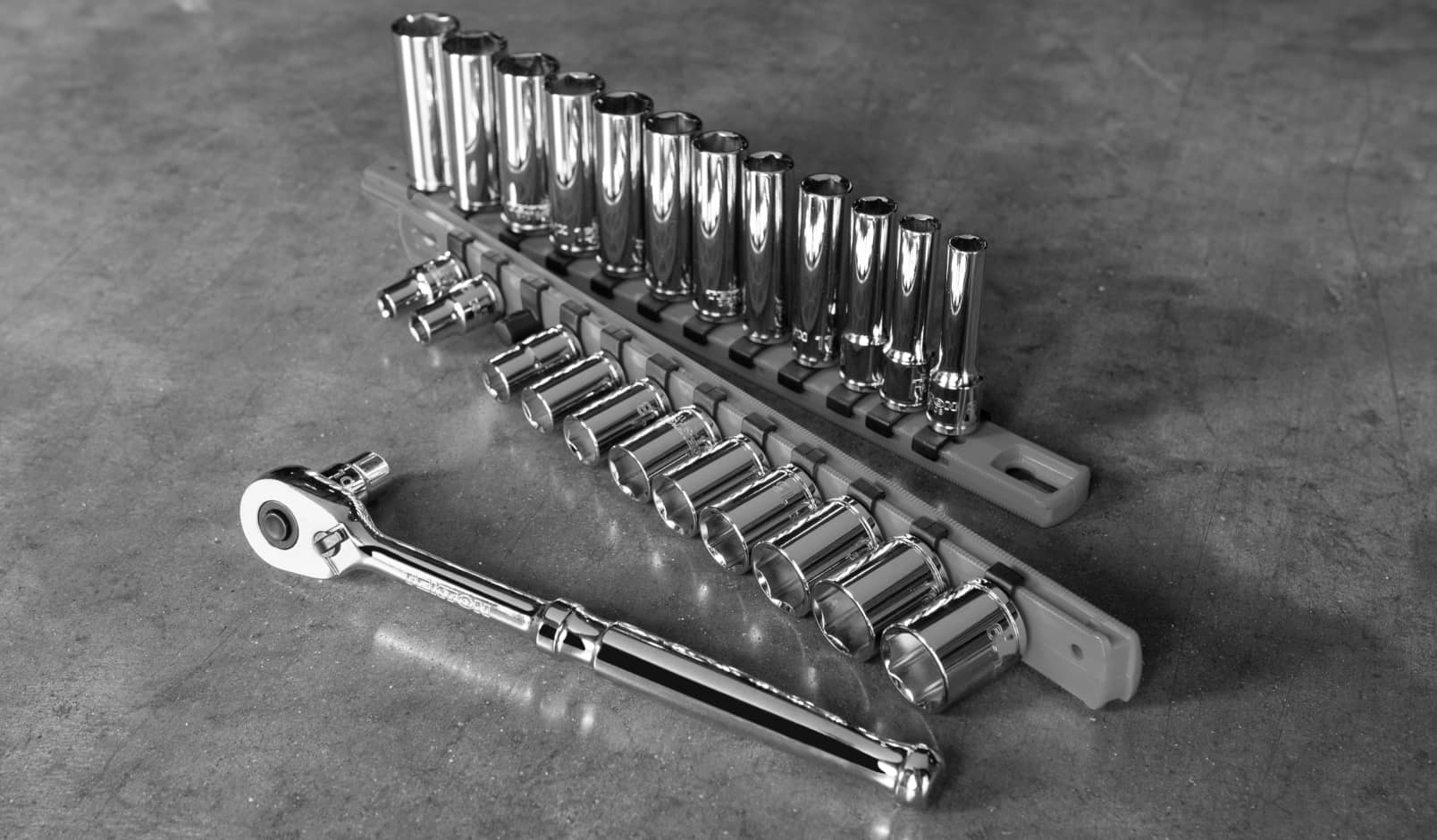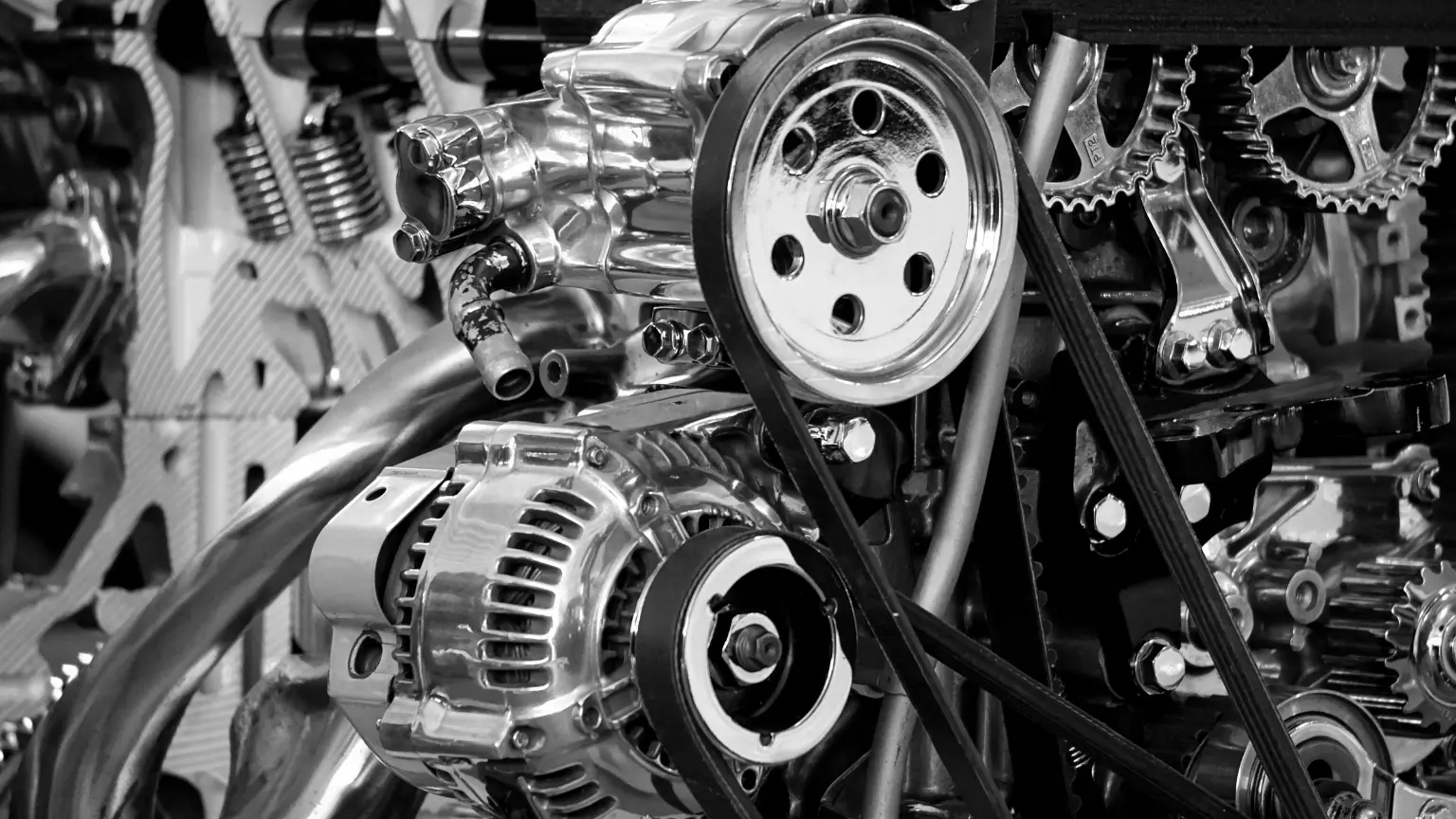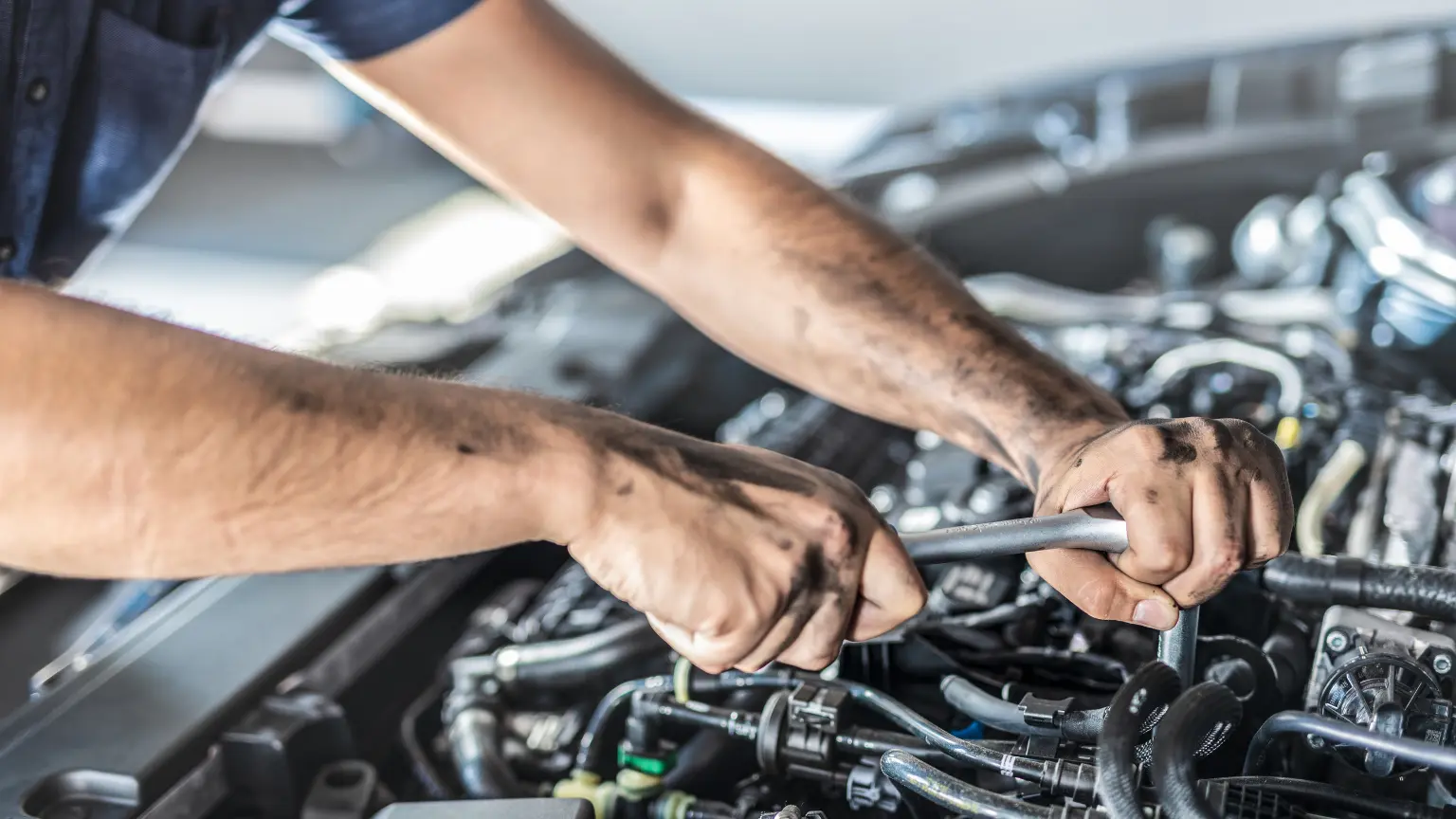The Ultimate Maintenance Tips For Extending Your Transmission's Life
Learn why regular transmission maintenance is vital for longevity, performance, and efficiency, with guidance on fluid changes, inspections, service schedules, and expert versus DIY approaches.

Transmission maintenance isn't just a routine car care practice; it's a crucial component of ensuring your vehicle's longevity and performance. Neglecting this can lead to premature wear and severe damage, necessitating expensive transmission repair or even a complete transmission rebuild. Regular maintenance helps prevent these costly scenarios, keeping your vehicle running smoothly and reliably. Moreover, well-maintained transmissions deliver better fuel efficiency and provide a smoother driving experience.
Regular Transmission Fluid Changes
How Often Should You Change Your Transmission Fluid?
The frequency of transmission fluid change depends on several factors, including the type and the vehicle's usage patterns. For most vehicles, manufacturers recommend changing the fluid every 30,000 to 60,000 miles. However, if you often drive in severe conditions, like frequent stop-and-go traffic or heavy towing, this interval should be shorter.

Signs That Your Transmission Fluid Needs Changing
Common indicators include the fluid turning a dark brown or black color, a burnt smell coming from the fluid, and noticeable particles or debris within the fluid itself. These signs suggest contamination and degradation, which can impede the proper functioning of your transmission. Addressing these issues promptly by visiting a transmission shop can help you avoid more significant and costly problems down the line.
Choosing the Right Transmission Fluid for Your Vehicle
Each vehicle manufacturer specifies a particular type of fluid that is optimized for the transmission's operation, taking into account factors like viscosity, friction coefficients, and heat resistance. These specifications are typically found in the vehicle's owner's manual. Using the incorrect type of fluid can lead to various issues, including increased friction and excessive heat, which can significantly degrade the transmission's performance and longevity. Moreover, incompatible fluids may react chemically with the transmission components, leading to deposits or corrosion that impair function and might necessitate costly repairs or replacements.
Transmission fluids degrade over time due to heat and mechanical wear, losing their effectiveness and protective properties. Scheduled changes in the transmission fluid can prevent the buildup of contaminants that lead to poor performance and failures. It's also important to be vigilant for signs of transmission fluid issues, such as unexpected shifting patterns, delays in transmission response, or unusual noises from the transmission area. These symptoms could indicate low fluid levels or the degradation of current fluid, signaling the need for a fluid change or further inspection by a specialist.
DIY vs. Professional Transmission Fluid Change
While some car enthusiasts prefer to change their transmission fluid themselves, this task might require professional expertise. The process involves not only replacing old fluid but also cleaning the transmission filter and inspecting for potential issues. A professional transmission service ensures that the change is done correctly and can help identify any early signs of transmission wear. Although DIY might save some immediate costs, using a professional service can be a more reliable way to protect your transmission in the long run.
Service Schedules and Routine Inspections
Creating an Effective Transmission Service Schedule
Typically, this schedule should include a comprehensive inspection of your transmission every 30,000 miles or as advised by your vehicle's guidelines. Sticking to a planned service schedule helps identify potential issues before they become serious, ensuring that your transmission remains in optimal condition and transmission repair costs are minimal. The importance of not ignoring warning signs or unusual noises from the transmission can prevent further damage.
The Role of Routine Inspections
As mentioned previously, routine inspections by a qualified transmission mechanic are crucial for maintaining your transmission’s health. These experts are trained to spot early signs of trouble that might not be evident to most vehicle owners. During an inspection, the specialist will check the transmission fluid level and quality, assess the state of the transmission filter, and scan for any leaks. A proactive approach prevents transmission problems and extends the unit’s lifespan.
The Benefits of Catching Problems Early
Early detection allows for simpler fixes—often requiring minimal parts and labor—compared to the extensive repairs needed for major mechanical failures. Maintaining your transmission’s performance prevents stress on other vehicle components, promoting overall vehicle health and safety.
Protecting Your Transmission from Damage
Tips for Avoiding Overheating and Heavy Towing
Avoiding overloading the vehicle and ensuring proper tire maintenance are two key factors that can help mitigate transmission strain. Towing loads that exceed the specified capacity of your vehicle can lead to excessive stress on the transmission system. This stress manifests as increased transmission fluid temperatures, which, if left unchecked, can cause premature wear and tear or even catastrophic failure of the transmission. The introduction of a transmission temperature gauge is a proactive measure that can help monitor these critical temperatures. By providing real-time data, this gauge enables drivers to make informed decisions about their driving habits, particularly in scenarios where the risk of overheating is high. In addition to monitoring transmission temperatures, several other strategies can help mitigate the risk of damage when towing heavy loads. First, ensuring that your vehicle is properly equipped for towing is paramount. This includes checking that the transmission system is suitable for the weight and type of load being towed. Upgrading to a heavier-duty transmission or installing an auxiliary cooling system can significantly enhance the transmission’s ability to handle heavy loads. The role of maintaining the engine cooling system and using transmission coolers is to prevent overheating, which can negatively affect transmission longevity.
The Impact of Driving Habits
This can significantly impact the health and efficiency of your vehicle's transmission, influencing its performance and lifespan. The way you handle your vehicle on the road can either extend or reduce the transmission's operational life. Here are three essential practices to enhance transmission health:
- Minimize Aggressive Driving: Aggressive driving, characterized by rapid accelerations and abrupt braking, can cause excessive stress on your vehicle's transmission. These actions lead to increased heat and pressure within the transmission system, accelerating wear on gears and other critical components. By moderating your driving style, you can prevent premature transmission failure and maintain optimal functionality. Adjusting your habits to include gentle starts and gradual stops can significantly preserve the integrity of your transmission.
- Practice Smooth Driving: Adopting a smooth and steady driving approach can greatly reduce mechanical wear and tear on your transmission. This technique involves maintaining a consistent speed and avoiding sudden gear shifts when unnecessary. Such practices not only extend the life of your transmission but also contribute to better fuel efficiency and a smoother ride. Gradual acceleration and deceleration keep the transmission working within its optimal range, preventing the excessive strain that leads to early degradation.
- Warm-Up Your Car in Cold Weather: During colder months, it's crucial to allow your car to warm up properly before driving. This warm-up period helps the transmission fluid circulate thoroughly, ensuring all components are adequately lubricated. Proper lubrication is essential for the transmission to function smoothly and efficiently. Cold weather can thicken transmission fluid, which impedes its flow and reduces its protective qualities. Allowing the vehicle to idle for a few minutes enables the fluid to reach an ideal viscosity, providing better protection and performance from the start.
Each step taken towards gentler and more mindful driving not only contributes to transmission longevity but also enhances overall vehicle performance, ensuring a safer and more reliable driving experience. Adopting these practices not only saves on costly repairs but also ensures your car remains a dependable companion on the road.
Use of Additives and Upgrades
When seeking to maximize your transmission’s performance and lifespan, considering the use of transmission conditioners, synthetic fluid upgrades, and specialized additives can be a valuable strategy, provided you make informed decisions based on your vehicle’s needs and manufacturer recommendations. Transmission conditioners are formulated to rejuvenate aging internal seals and gaskets, which can become brittle over time due to heat and wear. By revitalizing these components, conditioners may help reduce minor leaks, improve shifting smoothness, and delay the need for more invasive repairs. However, it’s important to note that while conditioners can provide short-term benefits, they are not a substitute for addressing underlying mechanical issues or neglected maintenance.

Upgrading to synthetic transmission fluid is another effective way to bolster transmission health, especially for vehicles subjected to extreme temperatures, heavy towing, or stop-and-go driving. Synthetic fluids offer superior resistance to thermal breakdown, oxidation, and viscosity loss compared to conventional fluids. This enhanced stability means better protection against overheating, more consistent lubrication, and reduced wear on transmission components. Before making the switch, always consult your owner’s manual or a trusted transmission specialist to ensure compatibility, as some transmissions are designed to operate with specific fluid formulations. In addition to conditioners and synthetic fluids, there are various transmission additives on the market designed to address specific concerns, such as reducing friction, preventing oxidation, or cleaning internal components. While some additives can offer incremental improvements, indiscriminate use may cause harm or void warranties. It’s crucial to select products approved by your vehicle’s manufacturer and use them as directed.
Choosing the Right Transmission Shop
What to Look For
To ensure that your car receives the best care and lasts a long time, selecting the right transmission repair shop is crucial. It’s important to assess various aspects to make an informed decision that you can trust. Here's a detailed exploration of what to consider:
- Certifications and Qualifications: It's vital to choose one that employs certified and experienced mechanics. Mechanics who specialize in transmission work are particularly valuable because they possess a deep understanding of the complex systems involved. Certified mechanics are trained to handle the intricacies of transmission repairs and maintenance, ensuring that they are up to date with the latest technology and techniques. This expertise is crucial for diagnosing issues accurately and performing repairs that last, ultimately saving you time and money.
- Reputation and Reviews: The reputation of a transmission repair shop can tell you a lot about the quality of service you can expect. A well-regarded shop is often known for its reliability and professional integrity. Check online review platforms, consult local forums, and ask for personal recommendations from friends or family who have experience with transmission issues. Insights can reveal a shop’s ability to handle complex problems, its customer service quality, and its overall reliability and trustworthiness in the community.
- Transparent Pricing: Transparency in pricing is crucial in any repair shop, especially for significant and potentially expensive repairs like those involving a transmission. A trustworthy shop will provide detailed quotes and clear explanations of what the repair will entail, helping you understand where your money is going. This openness helps prevent surprises when the final bill arrives and allows you to compare costs with other shops to ensure you're getting fair value. It's also indicative of professional integrity and respect for customers.
- Warranty on Repairs: A warranty on transmission repairs not only reflects a shop’s confidence in their work but also provides you with peace of mind. It is an assurance that the shop stands behind its service quality. Look for a shop that offers substantial warranties that cover both parts and labor, as this can significantly affect long-term satisfaction and the overall cost of car maintenance. A warranty can protect you against future issues that may arise shortly after the repair, ensuring that the shop’s commitment to quality extends beyond the initial service.
Choosing the right transmission service tips involves careful consideration of these factors, each of which plays a crucial role in ensuring that your vehicle is in capable hands. By focusing on shops that excel in these areas, you can ensure that your vehicle receives expert care, which is essential for maintaining optimal performance and extending its lifespan. There are benefits of scheduling regular transmission inspections, servicing, and timely filter changes.
The Advantages of Consulting a Transmission Specialist
Specialists are trained extensively in the complexities of both manual and automatic transmissions, equipping them with the knowledge necessary to diagnose and address issues with high precision. This expertise is crucial, particularly for advanced automatic transmissions, which involve sophisticated technology that requires a nuanced understanding to maintain and repair. For older manual transmissions, a specialist's familiarity with historical models and their unique requirements can be invaluable. These professionals are adept at preventing transmission problems.
They often have access to the latest diagnostic tools and specialized equipment that may not be available in general automotive repair shops. These tools enable them to perform accurate assessments and conduct repairs with a level of precision that general mechanics might not achieve. For example, modern diagnostic equipment can quickly interpret complex electronic communication within automatic transmission care, pinpointing issues without invasive probing that might further harm the system. This capability not only speeds up the diagnostic process but also enhances the reliability of the repair, reducing the likelihood of recurring problems. Specialists also have better access to high-quality replacement parts that are crucial for maintaining the integrity of the transmission system, ensuring that repairs last longer and perform better.
Understanding Transmission Repair Costs
Costs can vary widely based on the extent of damage, the type of transmission, and the vehicle make and model. Typically, minor repairs might involve replacing sensors or seals, while major issues can be significantly more expensive. Getting multiple estimates can provide a clearer picture of what repairs are necessary and help ensure you are getting fair pricing.
When to Consider a Transmission Rebuild
A transmission rebuild may be considered when extensive damage or wear renders simple repairs insufficient. This process involves disassembling the entire transmission, cleaning all components, replacing worn or damaged parts, and then reassembling it, often restoring it to near-original condition. Deciding to rebuild rather than replace can depend on various factors, including the age of the vehicle, the cost of a new transmission, and the expected lifespan of the car post-repair.

Knowing how to extend transmission life is not merely a maintenance task; it is an investment in the future of your vehicle. With the right care and attention, you can ensure that your transmission upkeep runs efficiently for years to come, providing you with a reliable and enjoyable driving experience. For expert transmission maintenance and rebuilds, visit Trans Medic Transmission to keep your vehicle running smoothly. Maintaining a healthy transmission can significantly contribute to your vehicle's resale value, making it a wise financial decision as well.
Follow a maintenance program
Ante gravida id aenean quis egestas risus nam amet nullam leo diam diam aliquam eu eu malesuada arcu rhoncus suspendisse nulla mattis ut amet sagittis in justo egestas.

search for a trusted mechanic
Lorem ipsum dolor sit amet, consectetur adipiscing elit lobortis arcu enim urna adipiscing praesent velit viverra sit semper lorem eu cursus vel hendrerit elementum morbi curabitur etiam nibh justo, lorem aliquet donec sed sit mi dignissim at ante massa mattis.
- Neque sodales ut etiam sit amet nisl purus non tellus orci ac auctor
- Adipiscing elit ut aliquam purus sit amet viverra suspendisse potent
- Mauris commodo quis imperdiet massa tincidunt nunc pulvinar
- Excepteur sint occaecat cupidatat non proident sunt in culpa qui officia
Check the air pressure in your tires
Vitae congue eu consequat ac felis placerat vestibulum lectus mauris ultrices cursus sit amet dictum sit amet justo donec enim diam porttitor lacus luctus accumsan tortor posuere praesent tristique magna sit amet purus gravida quis blandit turpis.
Review your suspension frequently
At risus viverra adipiscing at in tellus integer feugiat nisl pretium fusce id velit ut tortor sagittis orci a scelerisque purus semper eget at lectus urna duis convallis. porta nibh venenatis cras sed felis eget neque laoreet suspendisse interdum consectetur libero id faucibus nisl donec pretium vulputate sapien nec sagittis aliquam nunc lobortis mattis aliquam faucibus purus in.
- Neque sodales ut etiam sit amet nisl purus non tellus orci ac auctor
- Adipiscing elit ut aliquam purus sit amet viverra suspendisse potent
- Mauris commodo quis imperdiet massa tincidunt nunc pulvinar
- Excepteur sint occaecat cupidatat non proident sunt in culpa qui officia
Service your vehicle as regularly as posible
At risus viverra adipiscing at in tellus integer feugiat nisl pretium fusce id velit ut tortor sagittis orci a scelerisque purus semper eget at lectus urna duis convallis. porta nibh venenatis cras sed felis eget neque laoreet suspendisse interdum consectetur libero id faucibus nisl donec pretium vulputate sapien nec sagittis aliquam nunc lobortis mattis aliquam faucibus purus in.
“Nisi quis eleifend quam adipiscing vitae aliquet bibendum enim facilisis gravida neque velit euismod in pellentesque”
Conclusion
Eget lorem dolor sed viverra ipsum nunc aliquet bibendum felis donec et odio pellentesque diam volutpat commodo sed egestas aliquam sem fringilla ut morbi tincidunt augue interdum velit euismod eu tincidunt tortor aliquam nulla facilisi aenean sed adipiscing diam donec adipiscing ut lectus arcu bibendum at varius vel pharetra nibh venenatis cras sed felis eget.


